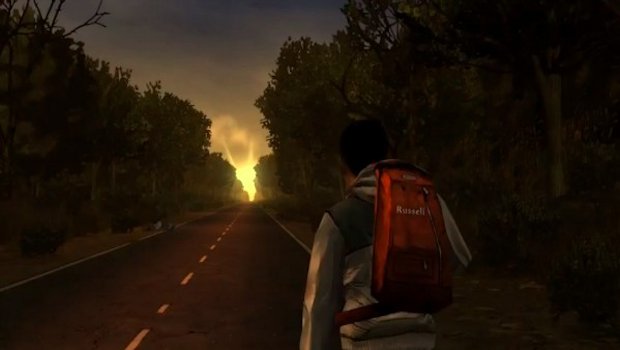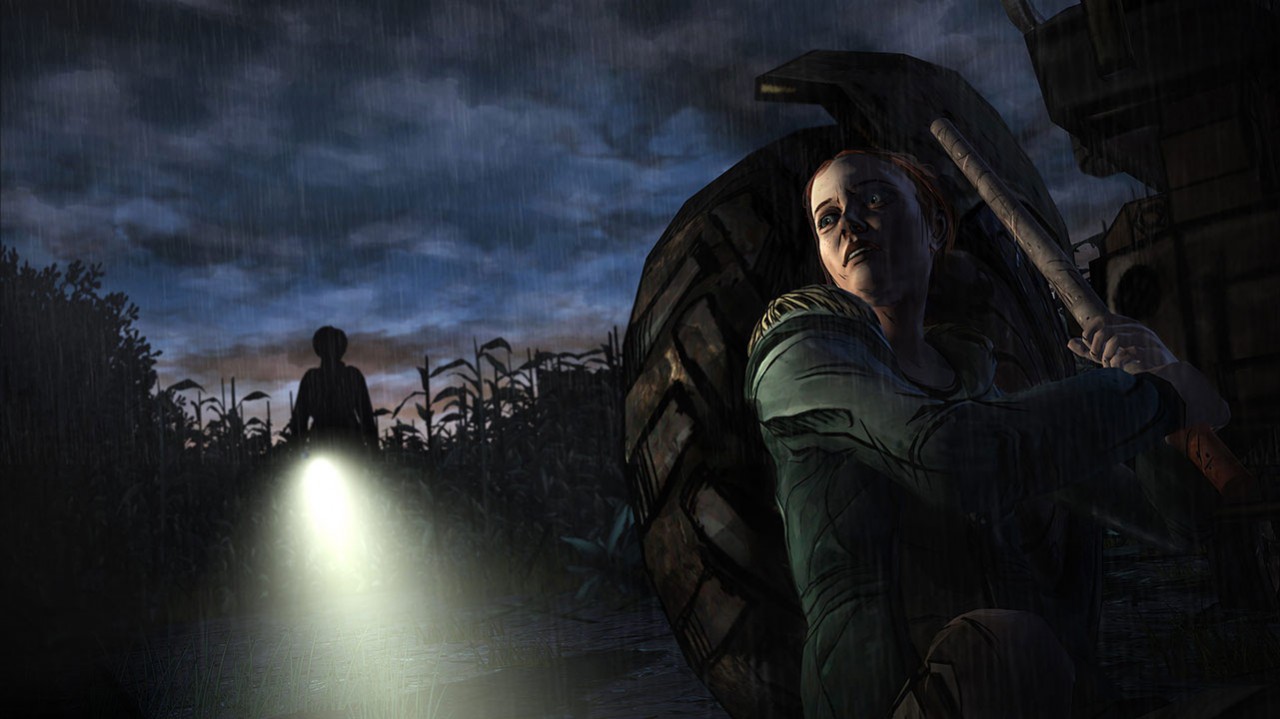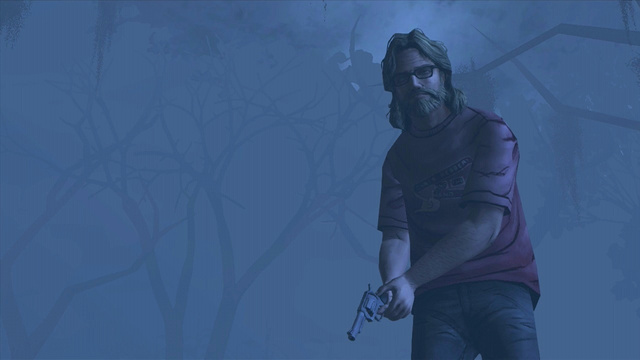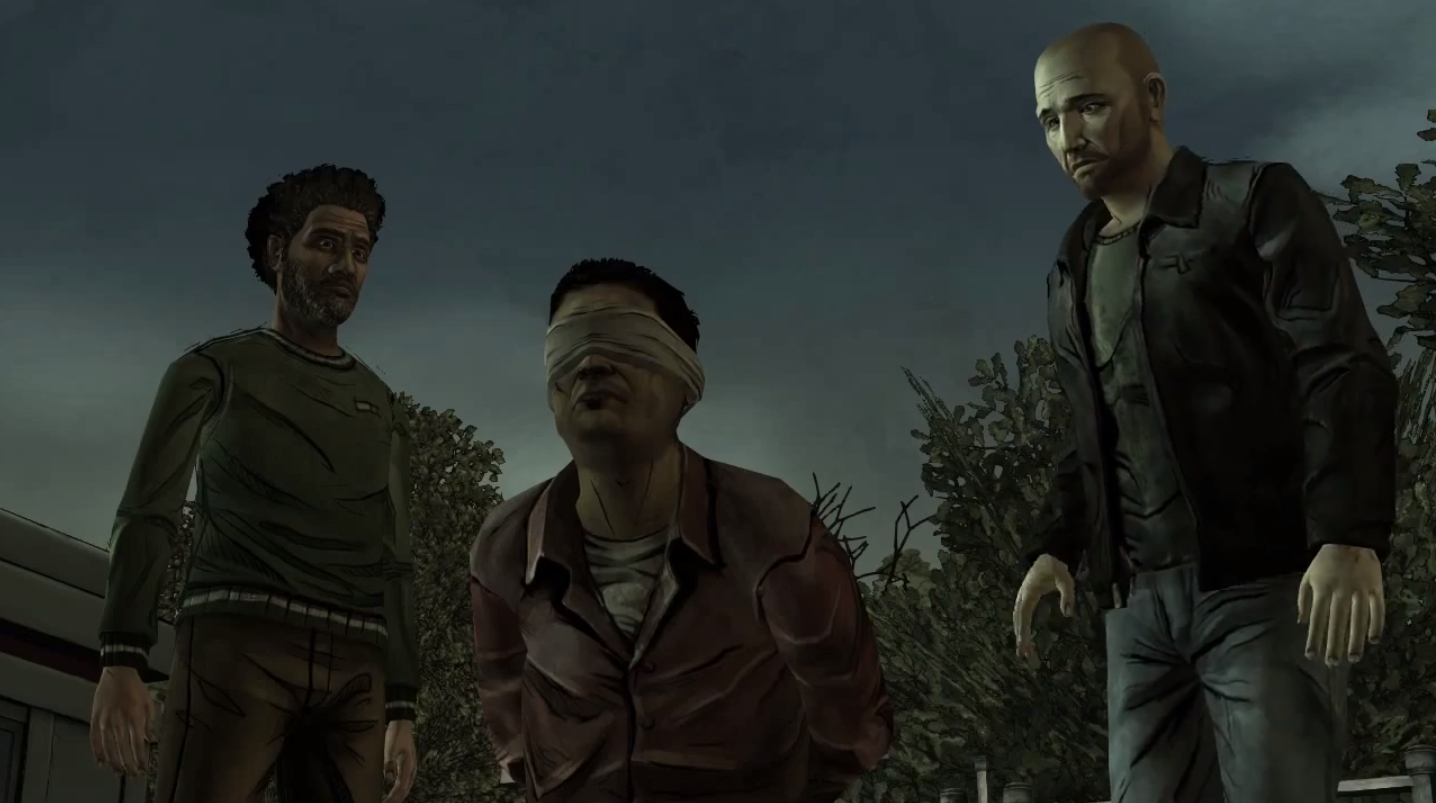Telltale Games’ episodic heartbreaker, The Walking Dead, took everybody by surprise last year, featuring some of the best storytelling in the video game medium to date and landing at the top of many Game of the Year lists. The second season has a lot to live up to, which will be difficult, because now people are expecting a great story and perhaps hoping for a more polished design. The Walking Dead: 400 Days arrives as a stand-alone, in-between episode that could act as a setup for season two. It’s still very good, but it doesn’t quite pack the punch of any episode from season one.
Perhaps that is because 400 Days is almost like the inverse of season one. Whereas season one told one cohesive story from the perspective of its protagonist, Lee, spread across five episodes, 400 Days tells five short stories within a single 90-minute episode. They are all quite brief—including one that is only a single scene set in a prison bus—so it’s almost guaranteed that you won’t form a strong emotional connection with any of the characters. And unfortunately for 400 Days, that emotional connection has to date been one of The Walking Dead’s greatest strengths.
The stories take place any time within the first 400 days of the outbreak, and you select each one in any order you would like from a missing person bulletin board outside a truck stop. They are all over just as you start to care about the story’s main character. To Telltale’s credit, they do an admirable job of at least making you like the characters and sympathize with them within your short time together.
In the order that I played them, there is the story of Russell, a teenage boy who hitches a ride with a crazy redneck pervert and runs into some trouble in the form of a shooter holed up in the truck stop diner. When you discover the identity of the shooter, you’re faced with another of the series’ trademark tough choices, in which you must decide someone’s fate within a couple seconds. I chose the darker, more brutal option, because it’s a tough, new survivors’ world out there, and the shooter could pose a threat to the next innocent who rolled through the truck stop.
The second story I played ended up being my favorite, in which you play as Bonnie, a recovering junkie traveling with an older couple. When you meet Bonnie, it is clear the she and Dee’s husband, Leland, have begun to develop feelings for each other, and I chose to pursue that romantic connection, because, well, I’m a pervert. What I love about this story is that it allows you to make selfish, arguably sinister decisions not to survive but in the name of love.
In the shortest story of the bunch, you play as a Vince, a young man convicted of murder for trying to protect his brother. He gets stuck in a prison bus on the second day of the outbreak. As zombies begin to overtake the bus, you must find a way to get free of your chains and survive. There isn’t much to this story, but the banter between the prisoners on the bus is fun, as is the choice you must make to break free of your ankle chains.
In the weakest story, you play as Wyatt, who continually makes dumb decisions (reminiscent of characters in a teenage slasher movie) with his stoner buddy as they try to outrun another group of survivors. Wyatt’s story is generally goofy fun that pays homage to slasher movies, but its tone doesn’t fit the mature, somber nature of the series. It sticks out like a sore thumb.
The last story I played ended up being the longest and most substantial, which is why I recommend you save it for last, too. You play as Shel, who is living with her sister and a group of survivors in the truck stop, many days after Russell’s encounter with a shooter there. The group has to make decisions regarding how to deal with outsiders who are caught trying to steal from them, and Shel has to do so with the realization that her input in the decisions is shaping her younger sister’s worldview. Is it better to protect her sister from the harsh realities of a grim, new world, or is it more important to teach her how to be a survivor rather than a good human being? It drives home the central theme of the series and the stories contained within this episode.
Like most horror anthologies, the stories range from mediocre to pretty good, but their faults and lack of emotional impact are forgiven due to their brevity. Like the episodes in season one, many of the best moments in each story are the split-second moral decisions you’re forced to make. These moments are generally great, but they lack the weight of choices you had to make in any episode of season one.
And sadly, despite the success of the first season of The Walking Dead, Telltale has still not quite figured out how to polish its game to truly make it shine. I didn’t run into any extreme, game-crashing bugs like I did in season one (especially episode three), but the transitions between cutscenes are still often stilted and awkward. The game continues to seem to pause and stutter between different shots. If sacrifices in quality assurance were made to get episodes out in time, I could actually forgive that because I care about digging deeper into the story more than technical perfection, but I doubt that is the case. Episodes of season one never released on time, and there was no reason to release this transitional episode until it was fully baked. You have our money, Telltale. Use it.
With 400 Days, Telltale continues it trajectory away from traditional adventure game tropes, such as painting the screen with the cursor to solve obscure puzzles. Instead, 400 Days focuses on telling compelling stories, and Telltale finds creative ways to push the envelope in that regard. It also smartly ties all five stories together in the end, but it’s hard to care about this group of survivors when we have spent so little time with them, and they might not even be the protagonists of season two. I suspect that (at best) they will be a group you run into in season two. Telltale also seems content to continue to deliver what feels like a slightly unfinished product. And a big questions still lingers. What happened to the one survivor we loved at the end of season one?



